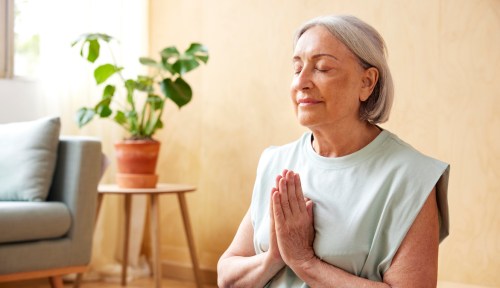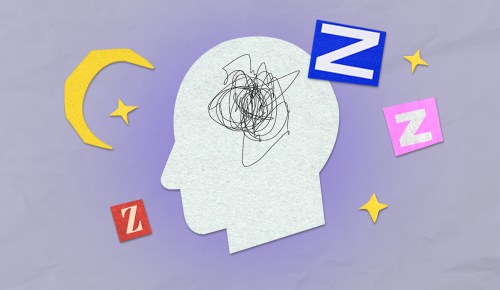When you think about the powerhouses of the meditation and mindfulness world right now, these two people probably spring to mind: Lodro Rinzler, the man bringing meditation to the masses as the chief spiritual officer at New York City meditation studio MNDFL, and Sharon Salzberg, a leading figure in the contemporary world of Buddhism and author of several here-to-change-your-life-books including Love Your Enemies and Real Happiness at Work.
So it’s not surprising that when these two get together, they dish out some seriously thought-provoking stuff. At one such meeting of the minds of mindfulness last week—AKA Salzberg’s Real Love: The Art of Mindful Connection book launch party—Rinzler interviewed Salzberg about her new book, and she revealed some of the radical ways you can (and should) think about love and relationships.
The first thing, Salzberg says, is accepting that loving yourself is easier than you think. Here’s what comes next.
1. You don’t have to earn love
According to Salzberg, thinking of love as something that’s innate and not earned is “startling” and “wakes us up,” and she knows not everyone will agree with that. “A lot of people might say, ‘I don’t deserve that, I have to earn it, I have to do XYZ before I’m worthy of love.’ And I think it’s pretty bold to think innately, ‘I don’t have to do anything.’ Just because you exist, you are worthy of love,” she says.
2. You don’t have to be a finished project to love
“I don’t think it has to be a done deal before we can love someone else,” Salzberg says of the idea that you must be a fully realized and perfected person before seeking love. “It’s often the love of others that mirrors in some way that capacity of love inside of us and reminds us, ‘Oh yeah, that’s there.'” Salzberg also says that the process of self-improvement could take a long time. “I think that’s the wrong way of thinking,” she says. “As we connect to others, something comes alive in us—that’s very generative of that kind of love for ourselves.”
3. Love is an ability, not a commodity
On how to even define or think about love, Salzberg says, “It’s not a feeling, it’s an ability. You will discover an ability within you, almost like in a seed form that is never destroyed. No matter what you may go through as a person, no matter what you may do as a person, it is never ever destroyed—it’s covered over or hidden, it may be hard to find, may be hard to trust. But it’s a capacity to love, to connect, to understand your life, to have clarity, to have wisdom. And that’s who you fundamentally are in a way.”
This post was originally published on July 24, 2017; updated on July 31, 2020.
Sign Up for Our Daily Newsletter
Get all the latest in wellness, trends, food, fitness, beauty, and more delivered right to your inbox.
Got it, you've been added to our email list.










